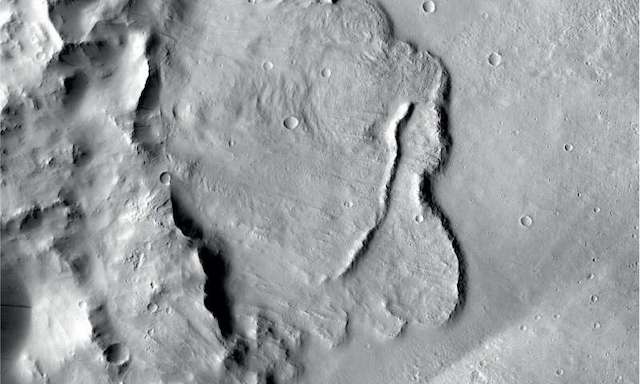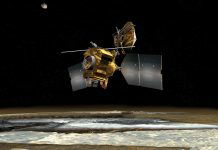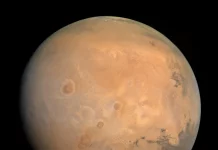
In a new study, researchers found the first geological evidence of planet-wide groundwater system on Mars.
The Mars Express has shown a system of ancient interconnected lakes that once lay deep beneath the Mars surface.
The research was conducted by …
Previous studies have suggested that Mars surface has compelling signs that large amounts of water once existed across the planet.
For example, Mars has flow channels and valleys, which have needed water to form.
Last year, Mars Express found a pool of liquid water beneath the planet’s south pole.
The researchers suggest that early Mars was a watery world.
But as the planet’s climate changed, water retreated below the surface to form pools and ‘groundwater’.
In the current study, the researchers in the study traced water. They explored 24 deep, enclosed craters in the northern hemisphere of Mars.
The floors lie roughly 4000 m below martian ‘sea level’.
They found the first evidence of a planet-wide groundwater system on Mars that was only predicted by models in the past.
The features of the floor could only have formed in the presence of water, including channels etched into crater walls and valleys carved out by sapping groundwater.
They also observed signs of minerals within five of the craters that are linked to the emergence of life on Earth: various clays, carbonates, and silicates.
The team believed these craters once contained pools and flows of water that changed and reduced over time.
The water level aligns with the proposed shorelines of a putative martian ocean.
The researchers suggest this ocean may have connected to underground lakes that spread across the entire Mars.
They believe their findings could help identify the regions of Mars that are the most promising place to find signs of past life.
The lead author of the study is Francesco Salese of Utrecht University, the Netherlands.
The study is published in the Journal of Geophysical Research: Planets.
Copyright © 2019 Knowridge Science Report. All rights reserved.
Further reading: Journal of Geophysical Research: Planets.



